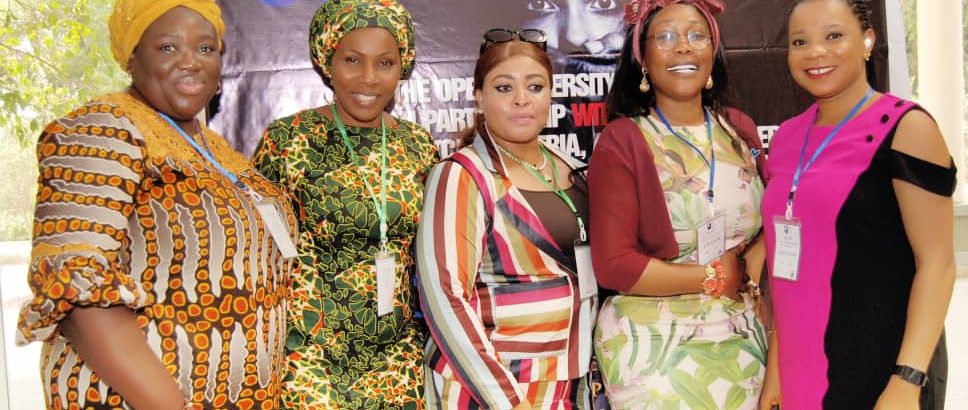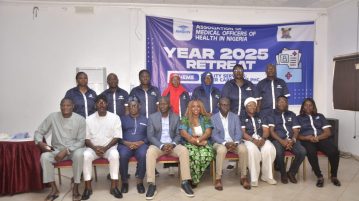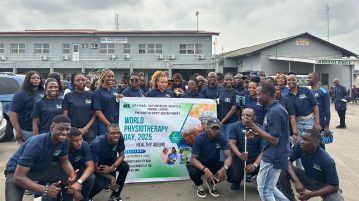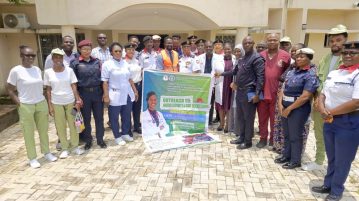The Open University UK in Partnership with WOTCLEF (Women Trafficking and Child Labour Eradication Foundation) Nigeria, Ace Charity, Nigeria and Peace Rehabilitation Centre, Nepal organized their first meeting for the Stakeholders Knowledge Exchange and Engagement Project (SKEEP) on the 30th of March, 2022.
Human trafficking can simply be described as modern-day slavery. It is a crime against humanity because in all forms, it deprives victims their basic human rights to freedom of any form. People, mostly women and girls, are trafficked for the purpose of sexual exploitation, forced labour, organ harvest and forced criminal activities. Nigeria and Nepal serve as source, transit and destination for human trafficking, hence, the cross national collaboration for SKEEP.
The SKEEP is aimed at improving support to girl survivors of human trafficking in Nigeria and Nepal. This first engagement was for knowledge sharing among participants from both countries. With the event been hybrid, holding concurrently online and onsite, at Nepal and Shehu Musa Yar’dua Centre in Nigeria.
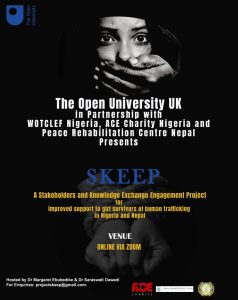
Mr. Josiah Emeriole, Director of public enlightenment of the National Agency for the Prohibition of Trafficking in Persons (NAPTIP), represented the Director General at the event. In his speech, he gave a concise, yet in depth overview of the progress the agency has made in the fight against human trafficking. He spoke about the agency’s engagement with traditional rulers to break the oath of secrecy which hitherto had made victims unable to speak up. However noted that, some of these voodoo priests had moved to neighbouring countries where they now operate from. He also talked about trafficking being entrenched in some of the cultural practices, thus making it a norm in some places and preventing victims from reporting.
Although, traffickers have continually strategized on ways to continue this crime against humanity, NAPTIP has not relented in tracking down traffickers. Trafficking in persons have become more difficult for traffickers as NAPTIP continually engages civil society organizations (CSOs) and raises public awareness.
For instance, an example of the CSOs engaged is WOTCLEF – which influenced the bill that led to the establishment of NAPTIP – and have been instrumental in helping the agency to effectively engage the general public in the fight against human trafficking. NAPTIP also noted that some traffickers have tried to work with the agency pretending to be NGOs fighting against human trafficking. However, when the agency investigated their authenticity, they were found to be traffickers too. The agency says much is being done to end human trafficking in Nigeria. Albeit, much more needs to be done. To this end, the agency partners with CSO and other law enforcement agencies.
NAPTIP engages the 5Ps (Policy, Protection, Prevention, Prosecution and Partnership) framework in fighting human trafficking.
As part of programs in place to help victims/survivors of trafficking reintegrate into society, NAPTIP allows them the free will to choose what they would prefer to do; ranging from skill acquisition, trainings, to formal education. Some of them have successfully completed their education and are presently employed with the agency as full-time staff. They also form part of the team that counsel other victims/survivors of human trafficking.
The speakers from Nepal, also highlighted the works that are being done in their country to end human trafficking. They noted that in Nepal, a lot of work has also been ongoing, to fight the menace. It was reported that most of the women and girls that are trafficked from rural areas in Nepal, are used for forced labour and sexual exploitation. A good number of the victims have been helped, rescued, reunited with their families and also reintegrated back into the society. Also present was Abdulganiyu Abubakar – the President of Network Against Child Trafficking Abuse and Labour (NACTAL) – who spoke on the organization’s engagement in the fight against trafficking and child abuse.
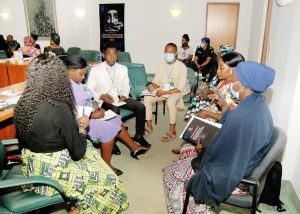
During the breakout session, where groups participating discussed “Best Practice” as it applies in their various locations. Participants from the Nigerian breakout room stated that, “In Nigeria, victims are not criminalized rather they are taken care of. We also offer psychosocial support to victims as a practice because they have been traumatized and need mental health support”. Furthermore, NAPTIP tends to create a synergy between the responders, law enforcement agencies and CSOs. The use of survivors as counsellors and in raising awareness is also a practice that has been adopted. These survivors are also allowed to have a say in the choice of what they want to do. Likewise, CSOs are engaged during policy formulations as it concerns human trafficking, awareness campaigns are done in schools and participation of school children in these activities is also a practice in Nigeria that is gaining ground in the fight against trafficking.
From the breakout session, it was recommended that there should be dedicated courts for cases of human trafficking to facilitate justice for the survivors. Also, there should be economic empowerment of the at-risk-population to reduce their vulnerability to traffickers who lure them with non-existent offers of financial benefits. Shelter provision medical and legal aids were also part of recommended services to facilitate survivors’ rehabilitation and justice. Another recommendation was a reorientation of the general population- let us all be our brother’s keepers, pay attention to children under our watch and raise alarm when you identify a trafficker or a victim.
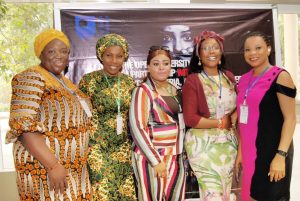
Recommendation from the breakout session included; provision of dedicated courts for cases of human trafficking to facilitate justice for the survivors, economic empowerment for at-risk-population to reduce their vulnerability to traffickers – who lure them with non-existent offers of financial benefits, shelter provision, medical and legal aids services to facilitate survivors’ rehabilitation and justice, also a reorientation of the general population – to be our brother’s keepers, pay attention to children under our watch and raise alarm when you identify a trafficker or a victim.
During another session away from the break out session, Hon. Tolulope Akande-Sadipe (chairperson house committee on Diaspora) spoke passionately about the need to start doing the work, as a lot has been said about fighting human trafficking. She noted that everyone needs to be involved in the fight against trafficking and pointed out; corruption, porous borders and globalization among other factors, as key in facilitating human trafficking.
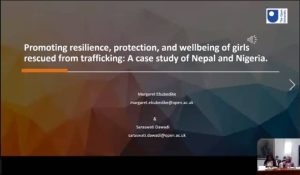
As a law maker, she went further to share her experiences with immigration officers – whom she had reported a suspected case of trafficking to – at the point of exit from the country, but she was surprised that the trafficker was released later. She decried the rate at which corruption has so much impeded the fight against traffickers. She also shared how she has personally facilitated victims/survivors return and equipped them with personal skills to be able to cater for themselves. Stating that she speaks with so much passion on the issue of trafficking because, she is very pained knowing that those young girls being trafficked could have been her own children if circumstances were different. She concluded by expressing her constant readiness and willingness to collaborate and give legislative support to the fight against trafficking in persons, as she urged NAPTIP to be at the nation’s main points of exit and entry. She also called for funding for the agency to be able to carry out its duties effectively.
The founder of WOTCLEF, Her excellency Titi Abubakar shared her personal story and inspiration behind setting up the foundation. Explaining she had the burden to do something to help victims while she was living in Italy, and saw many young Nigerian girls in the city of Rome working as commercial sex workers. She carried that burden in her heart for so long and when her husband became vice president, she swung into action. With continuous advocacy, the foundation eventually influenced the creation of NAPTIP. The foundation has since inception, facilitated the return of victims of trafficking, reunited them with their families while also reintegrating them to society. WOTCLEF has shelter for victims/survivors of trafficking, many of whom have been able to return to school, graduated and are doing well in their chosen endeavours. The Chairman, United Nations Voluntary Trust (UNVTF) – Dame Julie Okah Donli – in attendance, also made submission on Victim Centered Support.
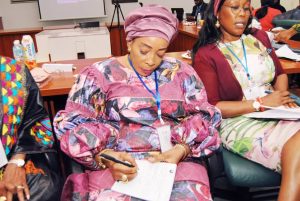
The organizers of the stakeholders meeting were impressed with the level of work being done in both countries and in agreement with the participants concluded that, the missing link in the discussions was THE VICTIM. The organizers appreciated everyone present and announced that the SKEEP will continue to engage stakeholders. To this end, the project would re convene in May, to discuss actionable plans as they apply to the individual countries. Also part of this robust engagement was the Nigerian Medical Association (NMA) Lagos committee on human trafficking, represented by the committee chairman – Dr. Ufuoma Adingwupu, and the logistics/publicity secretary of the committee – Dr. Awosusi Bayodele.

About Author:
Dr. Ufuoma Adingwupu is Primary Care Physician with special interest in Gender based violence (GBV) and currently the Chairman, Adhoc Committee on Human Trafficking, NMA Lagos. She can be reached @Dr. Ufuoma across all social media platforms.

